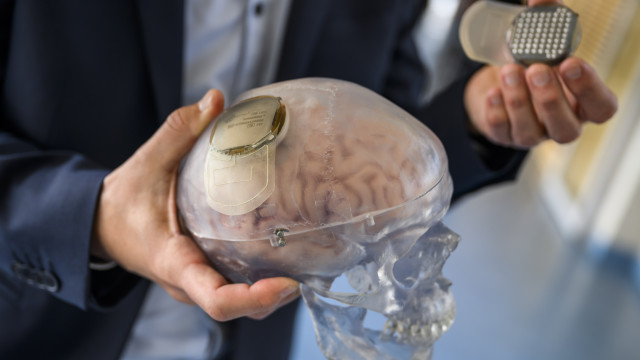Scientists have created human brain tissue for the first time. American biologists have succeeded in bioprinting the world's first sample of artificial nervous tissue that grows and transmits signals in the same way as the human brain, Russian media reported. The artificial nerve tissue sample created is based on neurons and glial cells grown from human pluripotent stem cells. The tissue printed on a bioprinter grows and functions like the human brain: it forms neural connections - synapses - and transmits signals along them. Scientists have developed a technology for sequentially applying several horizontal layers composed of different types of cells. This made it possible to obtain a fine structure that ensures the penetration of oxygen and nutrients.
Another know-how of American scientists is a soft hydrogel, which can, on the one hand, maintain the shape of the structure, and on the other, maintain the viability of cells, provide conditions for the proliferation of neurons and the formation of synapses between them. "The resulting tissue is strong enough to support the structure, but soft enough to allow neurons to grow together and exchange signals," said study leader Su-Chun Zhang, a neuroscientist at the University of Wisconsin-Madison's Weisman Center. "We printed the cerebral cortex and the striatum and what we found was amazing. Cells belonging to different parts of the brain communicated with each other in a certain specific way," continues the scientist.
The authors believe that their technology can be used by other laboratories as it does not require any special equipment other than a conventional bioprinter. It gives neuroscientists a new tool to study the connections between brain cells, potentially leading to more effective treatments for many neurological and psychiatric disorders, as well as neurodegenerative diseases such as Alzheimer's and Parkinson's, the researchers noted.
"To study health and disease, we need a reliable model of living human neural tissue, as animal models cannot fully reproduce the complexity of the human brain," the paper's authors write.
Today, research in the field of 3D printing of functional tissues and organs is conducted in Russia, USA, Japan, China, South Korea, France and other countries. /BGNES
Breakthrough in science: world's first 3D brain tissue printed







